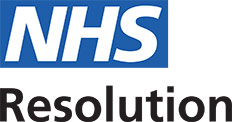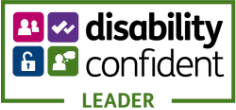Challenging the NHS’ workplace culture is key to improving patient safety says NHS Resolution in their latest guidance.
Being fair: supporting a just and learning culture for staff and patients following incidents in the NHS highlights the need for the NHS to involve users of care services and staff in safety investigations.
The paper draws on NHS Resolution’s unique dataset to explore best practice in response to incidents resulting from claims from across the system. NHS Resolution received 317 claims valued at close to £27.5 million in the past four years relating to staff stress and bullying in NHS trusts.
This guidance aims to help the NHS to create an environment to better support staff when things go wrong and to encourage learning from incidents. Key challenges include:
- Fear: The substantial fear of being inappropriately blamed following an incident, the effect on future employment and what peers will think risks preventing NHS staff from sharing and learning.
- Equity and fairness: Research reveals that there is inequity and discrimination at an individual level and disproportionate disciplinary action is experienced by black, Asian and minority ethnic (BAME) staff, with women making twice as many claims as men.
- Bullying and harassment: Sadly compound the understandable stress when things go wrong, leading to burnout and a loss of productivity
NHS Resolution collaborated with organisations including NHS Improvement and Action against Medical Accidents (AvMA), the UK charity for patient safety and justice who supported the creation of a Just and Learning Culture Charter that trusts can adopt.
The study was co-authored by Dr Denise Chaffer, Director of Safety and Learning, NHS Resolution, Roger Kline OBE, Research fellow, Middlesex University Business school and Dr Suzette Woodward, Senior Advisor Department of Health and Social Care and NHS Resolution.
The Being fair guidance encourages a more consistent and equitable approach for all, and is supported by Being Fair charter for all healthcare-related organisations to take forward. A just and learning culture balances fairness, justice, learning – and taking responsibility for actions.
Dr Denise Chaffer, Director of Safety and Learning
NHS Resolution’s guidance provides a blueprint for transforming the culture within the NHS to build a more supportive, just and learning environment. It will help create a more consistent approach to investigations when things go wrong, supporting fairer treatment for staff and organisations, enabling them to capitalise on learning and delivering significant benefits to patients. To fulfil the ambition in the Long Term Plan to make the NHS the safest healthcare system in the world, we need to foster a more open attitude to patient safety and the ‘Being Fair’ guidance will be an important stepping stone to achieve that.
Minister for Care, Caroline Dinenage
There is a growing recognition that the current approach to disciplinary action makes no clear contribution to better and safety patient care but is likely to discourage learning and, instead, to emphasise blame. This report explains why and how some NHS trusts have started to rethink how they respond when practice does not go as intended within healthcare.
Roger Kline OBE, Research fellow, Middlesex University Business school
Being Fair provides clarity on what we mean by a just culture in healthcare. It helps to shift the service away from the blame culture that is so prevalent to a culture that balances fairness, kindness and compassion with accountability. It applies to everyone, for patients, their families, staff and organisations and not just when things do not go as planned.
Dr Suzette Woodward, Senior Advisor Department of Health and Social Care and NHS Resolution
Improving the culture of the NHS to one which is fair to both patients and to staff is vital if we are going to radically improve patient safety. We welcome this guidance as another step in the right direction, but much more work remains to be done.
Peter Walsh, chief executive of AvMA
Being fair sets out the argument for organisations adopting a more reflective approach to learning from incidents and supporting staff. Whatever the culture, dealing with concerns about a professional’s practice can be challenging.
There is no threshold for seeking expert, independent advice from our Practitioner Performance Advice service, if you are unsure how to respond to concerns relating to doctors, dentists or pharmacists. Your link adviser can be contacted by calling us on 0207 811 2600 and adviser biographies are available on our website.






